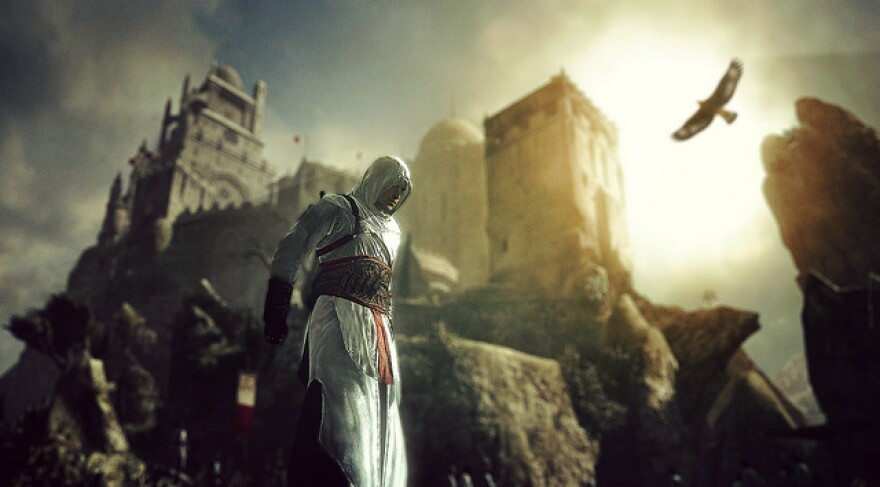


Video Games & History

"One game that we’ve played in the class was Sid Meier’s Civilization, which lets the player manage a civilization from the Bronze Age all the way up to the information age. Another game that we’ve played in class was Assassin’s Creed II. And whereas you do go jumping from rooftop to rooftop stabbing people, you do so in a historically provocative recreation of Renaissance Italy. Another game that we played was Railroad Tycoon, which lets you recreate the process of building historical railroads in the United States and Europe. Another game we played was Fallout, which lets players immerse themselves in a world where the visions of 1950s American futurism have all come true – and it’s a wonderful way to explore the difference between where we are now and where our ancestors thought we would be 50 years ago."
Consumers find history very compelling, and they like societies that seem to have a past, so I think we'll see a continuation of the development of increasingly historically-oriented, and increasingly sophisticated histories, in games.


"When people look at games, often the first thing that strikes them is the violence. Also there’s a good deal of misogyny in a lot of games. I encourage students to engage that on the one hand – it’s an issue that must be addressed – and on the other hand to look past it to the deeper narratives that these games engage."



Representations of History in Video Games (A course offered by the Sally McDonnell Barksdale Honors College at the University of Mississippi)
One of the characteristics of this course is that it doesn't draw from a well-established body of scholarship. Students have to do a lot of the basic theory work.

“Very often, historical movies, novels and games are essentially presenting a modern perspective with a historical background. An example would be Braveheart, where you have a character [William Wallace] who is essentially a Scottish Nationalist set in a time where nationalism absolutely did not exist. And so if you look at the way that histories are represented in a lot of video games--up until now at least--if you try and identify the motivations of the main characters, in series like Assassin’s Creed for example, you realize that those main characters want to create forms of justice, a forms of democracy, forms of gender equality, all sorts of concepts that are very modern and that often have nothing to do with the time period that’s being represented.”


"I have a student who is looking at extra-legal violence in the West, and comparing it with how it is portrayed in the game Red Dead Redemption. I have a student who is looking at the causes of death in The Oregon Trail, and comparing that with medial history and the history of the settlement of the west by white people. I have a student who is looking at housing segregation in post-war Los Angeles, and comparing it with the forms of racial segregation you see in the game L.A. Noire. Each student is free to pick one particular game and look at it from a very specific angle and ask a very specific question about it."
Oregon Trail
http://youtu.be/FfbGEP087HM

"I don’t know if I would define myself as a ‘gamer’ but I do have a Playstation. I don’t play all that many historical games. To me, when I play video games it’s to get away from the job. [Laughs] I tend to engage in, you know, other forms of senseless violence in those games. "








